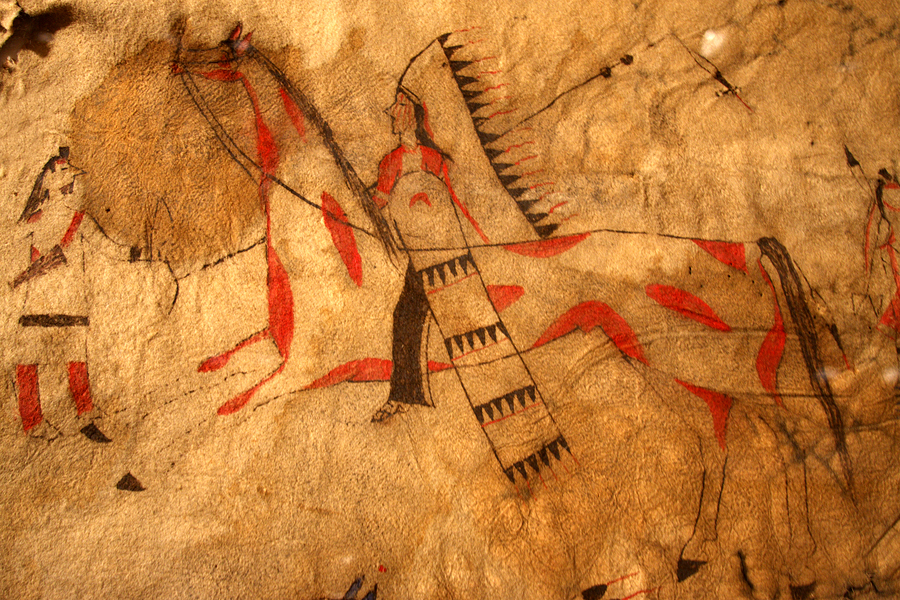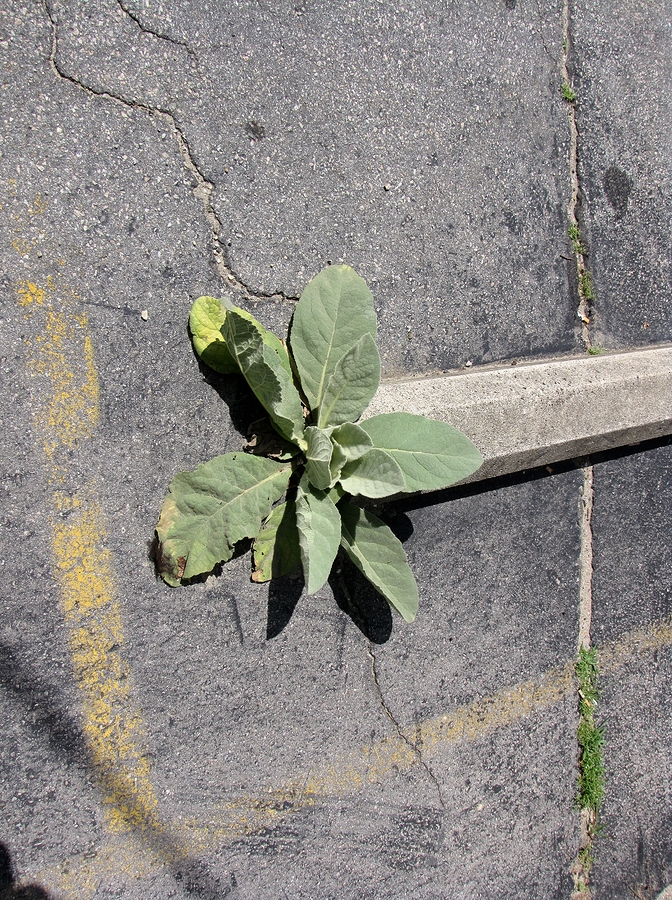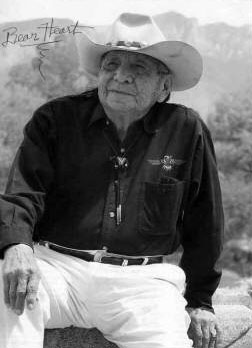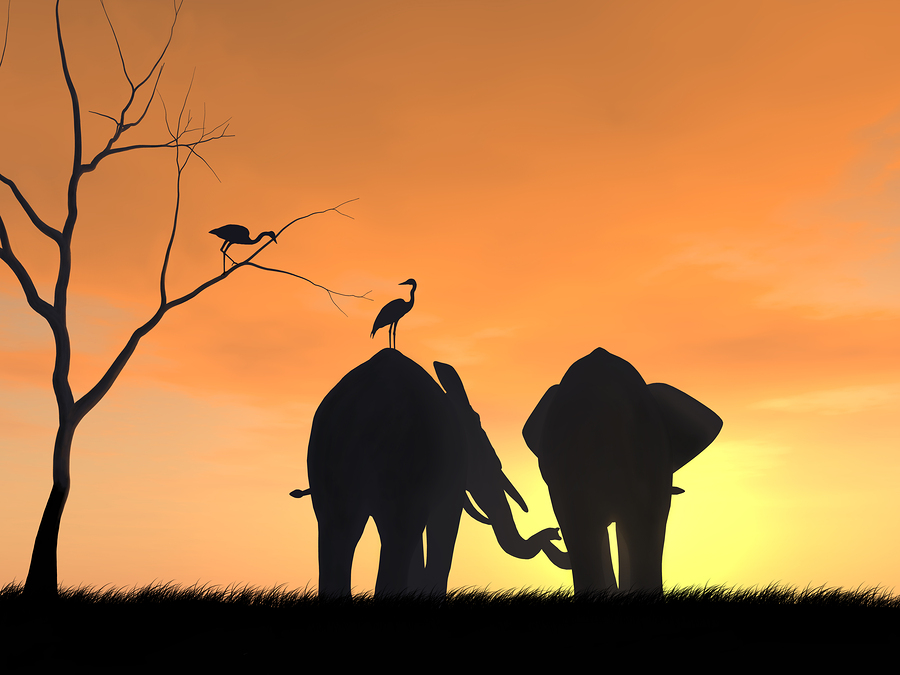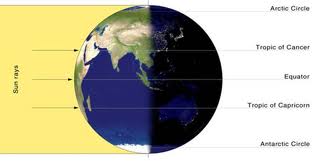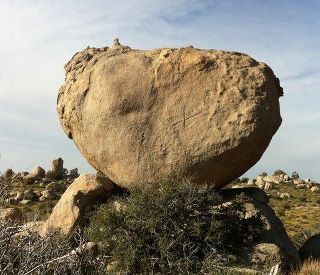“It is a good day to die!” Really?
Most of us have heard the Native American term “it is a good day to die.” It was usually said in the movies by a Native warrior as he rode off into battle. But how often do we think about what that really means? Do we live as though each day is a good day […]
Continue readingDo you think God is male? Think again.
Do you think God is male? Think again.
If we go back to the original words spoken by Jesus Christ, God was not male; God was “Abba” or parent – non-gender specific.
God is not male. The world needs to accept that. And soon. Because the belief that God is male has caused more tragedy on our planet than perhaps any other notion.
Women are still struggling their way up from the subjugation caused by this male-oriented concept.
After spousal/child/animal abuse and bullying, nothing gets me more irate than hearing God referred to as “He.”
“The Lord’s Prayer” is a particular pet peeve of mine because it is not even close to what Jesus Christ would have said.
Before you get upset with me and stop reading, hear me out. My evidence goes back to the Aramaic language spoken by Jesus Christ.
On anger: What would Crazy Horse do?
When the great Lakota leader Crazy Horse was getting ready to go into battle, he would review his warriors and, if any were full of anger, he would tell them to stay behind.
Only when they had conquered their anger could they rejoin him.
That’s surprising, isn’t it? One would think that such a dedicated and successful warrior on behalf of his people was motivated by anger, but apparently not.
Anger can point us in the direction of what’s important to us, but anger often controls the person instead of the person controlling it. And that’s where the trouble starts.
Holding onto anger is like grasping a hot coal with the intent of throwing it at someone else; you are the one who gets burned.” Buddha
DO YOU CONTROL YOUR ANGER OR DOES IT CONTROL YOU?
There’s nothing wrong with anger provided you use it constructively. Wayne Dyer
Use it to motivate you to make change.
But if it twists your heart into knots and makes you vindictive and out of control, it hasn’t served you. You have served it. I believe that’s the kind of anger Crazy Horse didn’t want in his warriors.
Why “Tootsie” is one of my favorite films
I learned a lot about being a woman from the 1982 Dustin Hoffman hit, “Tootsie.”
The reason it was a learning experience is rooted in the phrase, “Been down so long it looks like up to me.” That line is not in the movie, but the fact is that women have been so subjugated and derided all our lives that we don’t even see it any more. We just comply to get along.
But when an out of work actor masquerades as a women to land a role in a soap opera, we get to see the world of being a woman through his eyes, and it’s a wake-up call.
A meditation on weeding
When I purchased my first house over 15 years ago, I was pretty darn excited. About everything, even weeding.
I do know that, in the bigger picture of things, weeds are simply plants that we don’t know the use for. . . yet.
But sometimes they grow where we don’t want them. And what’s to be done, but … weeding!
Being in Southern California, I studied drought resistant plants and took pride in doing all my own landscaping.
I remember a friend being over one day and as we sat on the patio I saw a few weeds in the flower bed and reached down to pull them out. She made some comment about weeding and I said, “Yes, I’ll be weeding the rest of my life.”
We laughed at the time, but it was an off hand comment that was truly prophetic.
So what does it mean to be weeding for the rest of our lives. I’m not going to go into the esoteric teachings of removing negative thoughts and habits from our lives, though that is a good analogy.
I’m really going to talk about weeding an outdoor garden and how to make the best of it.
Our Tall Standing Brothers – the trees
The next time you see a group of trees, don’t just admire their beauty. Say thank you for all they do for us.
Did you know trees communicate with one another? They have a consciousness far beyond our awareness.
They also fight crime. Read on.
NATIVE AMERICAN TEACHINGS ON TREES
“It’s amazing what you feel from a tree. It can give us energy. When we take long hikes in wooded areas, we often put our fingertips on the ends of the cedar or the pine needles. Just standing there touching them, you’re going to feel energy come to you. Trees are emitting energy all the time. Every needle of the tree, every leaf, is trying to make the atmosphere breathable for us. That’s why my people have great respect for trees. The trees are our relatives — we call them “tall standing brothers.” Bear Heart in “The Wind Is My Mother”
The history of the U.S. Constitution we weren’t taught in school
If you’re like me, I was taught in grade school that the U.S. Constitution was based on ancient Greek democracy. This is quite a stretch, since ancient Greece government was not democratic.
My research into what children are taught today about the origin of our government is also disappointing.
Apparently the founding fathers simply created it out of thin air, or were influenced by European governments. This depute the fact there was no democracy anywhere in Europe at that time.
THE TRUE HISTORY OF THE U.S CONSTITUTION
The truth is that the U.S. Constitution is modeled in both principle and form on the Great Law of Peace of the Native American tribe known as the Iroquois.
This is absolutely, unequivocally historical fact.
The Importance of listening and tomatoes in Zambia
Do you know how to listen? I meet new people all the time through my work and travels and I’m amazed at how many of them just don’t listen to anyone else.
Having been taught good manners by my parents, and being Irish, who are a hospitable people, I always attempt to strike up a conversation when I meet someone new.
I ask their name, and where they’re from and what they like to do. Whatever it takes to build rapport and learn something about them.
But I have noticed how many people just talk about themselves and show no interest in learning about me. It’s astounding to me how many people just don’t seem to know how to listen.
Read on to find out what can be learned from listening and how to do it.
The Power of Observation
Native American youth were taught the power of observation from an early age. Good observation can have many benefits in our life, as demonstrated in this lesson from Muskogee Creek Elder Bear Heart in The Wind Is My Mother.
“As part of my training, one of my teachers had me spend an entire day doing nothing but observing from early morning to evening. I had to sit in a field all day long without moving my body — he told me to just move my eyes very slowly from side to side.
“What was I observing? What direction is the wind coming from? Does that cloud seem to contain any large amounts of moisture? Is it dark on the underside and light on top? If so, perhaps it’s going to rain.
“If you see birds flying, are they circling or going in a straight line? Are they water birds flying to where there might be some water? If you’re looking for water, perhaps you should head in that direction.
“There didn’t have to be any particular significance to all the things I observed — the point was not to let anything escape my awareness, to master the difference between looking and seeing.
Elephants never forget
Did you ever wonder where the saying, “elephants never forget” comes from?
A 2000 PBS documentary presents a striking example of elephant friendship.
The documentary “The Urban Elephant” brought viewers the touching story of Shirley and Jenny, two crippled elephants reunited at The Elephant Sanctuary in Tennessee after a 22-year separation.
Shirley, a former circus elephant, had lived for two decades in a zoo without the company of another elephant, and with a chain around her leg.
Her reunion at the sanctuary with her old friend Jenny is an astounding example of the way our four-legged friends can experience friendship, love and compassion as profound as that of humans.
Competition and the pink ribbon
Quite some time ago, when I subscribed to Horse illustrated, I read a letter to the editor that brought home the lesson of how much children have to teach us about competition.
It never fails to bring a tear to my eye; I hope you enjoy it, too.
Here it is, in its entirety, as written by Rhonda Goddard of Louisville, CO:
“Competition is essential. We learn from it, our characters are shaped by it, and we crave the rivalry. This competitive spirit is quite evident in the horse show world; few participants are unaffected by its influence.
“I am one of many who experience the thrills, woes and obsessions that accompany showing. Like my competitors, I coordinate my season zealously, selecting the right judges, attending the correct shows, and accumulating the most points in order to achieve my self-imposed goals – high point awards, year end placings, regional and national show qualifications.
“I am driven to attain these accomplishments by nothing more than my own desire to ‘succeed’. It took a child to remind me, however, that participation, good sportsmanship, and just plain enjoyment must always be my highest priorities.
“For several years I have judged the annual show for the Colorado Therapeutic Riding Center in Lafayette, CO. The show hosts a variety of events, including English and Western Equitation, Trail, and Dressage, as well as fun classes such as Egg in Spoon.
“Each time I judge this show I am reminded that I do not have problems, but rather minor inconveniences, in comparison with the difficulties these students must overcome.
If we could see inside other people’s hearts
“If we could see inside other people’s hearts” is a moving 4-minute video from the Cleveland Clinic, one of the most renowned medical centers in the United States.
I see it as a visual version of the Native American saying, “Don’t judge a person until you’ve walked a mile in their moccasins.”
Enough said. Have a hankie ready.
What is the 7th Generation principle and why do you need to know about it?
Whenever I mention the 7th Generation principle to most people, they think I’m talking about laundry detergent. I’m always surprised that more people don’t know the origin of the term, so I felt it deserved a post.
The “7th generation” principle taught by Native Americans says that in every decision, be it personal, governmental or corporate, we must consider how it will affect our descendents seven generations into the future. So that the pristine sky, field and mountains in this photo will still be here for them to enjoy.
A generation is generally considered to be 25 years, so that’s 175 years.
It is clearly not embraced by most governments and corporations in the world today. I mean, when was the last time any of us thought about who’s coming along seven generations from now?
The 7th generation principal was so important to Native American cultures that it was codified in the Iroquois Great Law of Peace. To my knowledge, all Native American and indigenous tribes throughout the world embrace this teaching.
Earthing: why even astronauts need to do it
Do you know what you have in common with astronauts? You both need to be in touch with the energy of Mother Earth in order to be healthy. And “Earthing” [also known as “grounding”] is an easy way to do it.
KEEPING ASTRONAUTS IN TOUCH WITH THE EARTH
We are so dependent on the earth’s energy, also known as her electromagnetic fields [EMF], that when we leave the planet for prolonged periods, we suffer.
The first Astronauts in space for long periods experienced what was called “space sickness” – nausea and disorientation.
The cause was a mystery until one scientist, Prof. Winfried Schumann, theorized it was because the astronauts, upon leaving the earth’s atmosphere, were deprived of the earth’s “song” or electromagnetic resonance.
The Power of Prayer
The power of prayer can take many forms. Bear Heart said, “Let your every step be as a prayer.”
What does that mean to you?
To me it means walking the earth each day with respect. And it means being ready to offer a prayer at a moment’s notice.
And prayer can take the form of acts of kindness, because that carries the same energy as prayer.
LEARNING HOW TO PRAY
I was raised a Catholic and prayer was something one memorized: the Our Father or the Hail Mary were the two most popular prayers I learned.
When I started attending Native American ceremonies, I was in awe of how people prayed from their heart, in their own words. It took a year or so of being in that environment before I felt comfortable praying out loud in ceremony. Now it’s second nature.
The First Day of Spring – A Time for Balance
What does the first day of spring mean for us?
This year the spring equinox in the Northern Hemisphere is Wednesday, March 20, 7:02 a.m. Eastern Time: a day of equal balance of the hours of light and dark before the sun continues its journey towards longer daylight hours and warming temperatures.
The equinox energy is strong for four days before and after March 20th, giving us time to bask in the opportunities and lessons it brings.
How to Improve Your Self-Esteem
In my work as healing practitioner, there is a consistent pattern I’ve discovered when people don’t get well, or don’t achieve a goal: They have low self-esteem and don’t believe they are worthy of health, wealth or success.
And I’m here to encourage you to get over that right now. You absolutely do deserve everything wonderful in life. You are indeed worthy of all good things.
I can think of a few reasons why low self-esteem is so pervasive in our culture:
First, we are surrounded with advertising that inundates us with the message that we have to be slimmer, taller, blonder or better dressed in order to have value.
We’re constantly being compared to supermodels. It’s humiliating. And it’s just plain wrong.
Checklist for A Perfect Day
How does one start a good habit? Particularly the habit of having a perfect day?
I admit that a checklist for anything, particularly a perfect day, might sound too unspontaneous to be a spiritual undertaking.
But to accomplish anything, we have to be intentional, and really work at it. And work takes time without interruptions, which means being organized. And checklists help with that!
This is my checklist for a perfect day [work day; days off are not so scheduled]. I am a person who finds routine productive and comforting. If you are, too, you may find this checklist helpful. By doing them in order, it guarantees they get done.
Change it to accommodate your lifestyle.
A tip:
If you have a commute to work, put commute time on your schedule. And I highly recommend doing something peaceful or productive during that commute. Listen to a motivating CD, do breathing exercises, or, if you’re a passenger, meditate. Commute time doesn’t have to be wasted time.
THE PERFECT DAY CHECKLIST
Commitment
I have always believed that commitment to a goal or cause is essential to its success. One can’t be lackadaisical about the intended result.
For 30 years I have carried around in my personal organizer a statement on Commitment written by W.H. Murray in “The Scottish Himalayan Expedition” in 1951.
It seemed about time to share it. Because every word is true:
Why An Open Mind is the Way to World Peace
My father taught me many wonderful things, mostly by example, which is the best way to learn. One of the things I most admire about him was that he had a very open mind and respected differing viewpoints.
That is refreshing in this day and age when people are quick to “unfriend” people who don’t see things the way they do.
I recall the time my father was at a football game sitting in front of someone rooting for the opposing team. His friend asked why he wasn’t upset about it and my father’s response was simply, “Well, that’s what makes a horse race.”
When I joined a cult in the 1970s, my father maintained a very open, wait and see attitude before judging me and my guru. In fact, he and my mother came to hear my teacher speak and to learn more about what I was involved in. I really didn’t know many parents who were doing that at that time.
In fact, my father told me about a conversation he had with someone critical of my guru:
Dad: Have you gone to hear him speak?
Critic: No
Dad: Have you spoken with members of his group?
Critic: No
Dad: Oh, so you’re an expert!
My father never hesitated to call it like he saw it.

